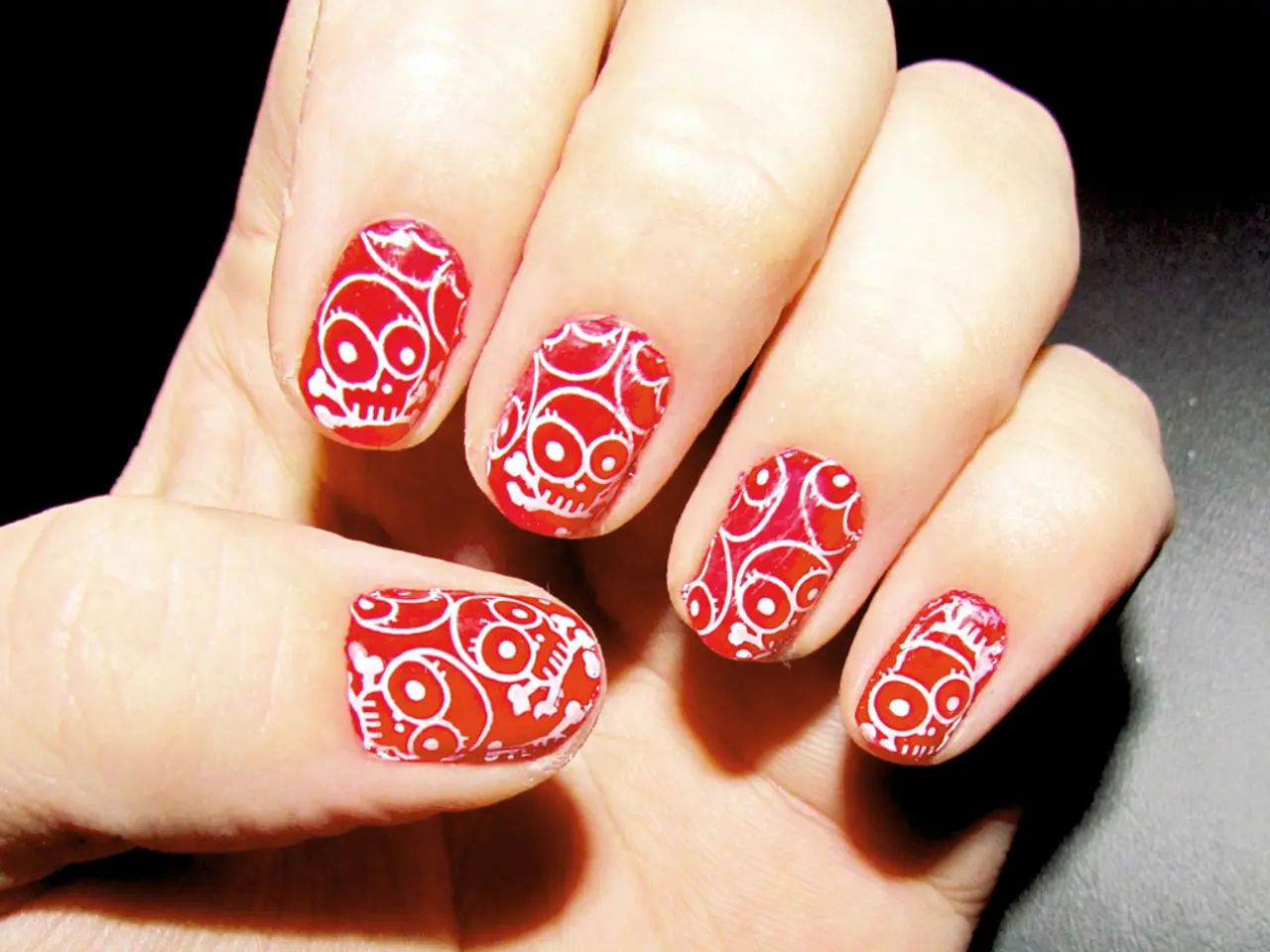Skin Irritations: Origins, Signs, Identification, and Remedies
Chronic dry skin patches can be a cause for concern, and understanding their root causes is essential for effective treatment. This article explores the common medical conditions that may lead to persistent dry skin, their symptoms, and potential treatments.
One of the most common causes of chronic dry skin is eczema, also known as atopic dermatitis. This chronic inflammatory skin condition often causes dry, itchy patches. Psoriasis, an autoimmune disease, is another culprit. It is characterised by thick, scaly, dry, itchy, and sometimes discoloured patches of skin.
Ichthyosis, a genetic disorder, is less common but notable for causing chronic skin dryness. Parapsoriasis, a rare inflammatory skin disorder, also presents with persistent, scaly, discoloured patches or plaques.
Diabetes, a condition that affects blood sugar levels, can also lead to dry skin. Elevated blood sugar levels can dehydrate the skin, making it dry and more prone to irritation.
Symptoms of psoriasis include dry, scaly patches of skin that may look violet or purple on darker skin or red on lighter skin, itchy or painful patches, peeling skin, and discoloration of fingernails and toenails. Atopic dermatitis, or eczema, can cause dry, irritated skin, scaly skin, a rash, itchiness, and cracked skin. On darker skin tones, both conditions can cause darker or lighter areas of inflamed skin.
Factors such as cold weather, lower moisture levels in the air, chemicals in soaps or lotions, hot water, excessive handwashing, dehydration, poor nutrition, or lotions containing alcohol can also contribute to dry skin.
Home remedies for dry skin include exfoliating with a loofah, pumice stone, or scrub, applying ointment or cream regularly, using a humidifier, applying a cold compress, adding baby oil to warm bath water, and moisturizing within 3 minutes of showering.
However, if the dry skin patches persist and you suspect an underlying medical condition, it's crucial to consult a healthcare professional. A doctor can diagnose the cause of dry skin patches by examining them, taking a person's medical history, and asking about risk factors and any skin conditions in the family. If a physician suspects that the issue results from an underlying medical condition, they will likely refer the individual to a dermatologist for further examination and diagnosis.
In severe cases, prescription medicines may be required. These include topical medications containing alpha hydroxy acids or retinoids, steroids, antibiotics, topical antiseptics, antihistamines, and more.
In summary, persistent dry skin patches can be caused by a variety of factors, including eczema, psoriasis, ichthyosis, parapsoriasis, and diabetes-related skin dryness. Each condition has unique features and may require different treatment approaches, so persistent dry patches should be evaluated by a healthcare professional for accurate diagnosis and management.
- Eczema, also known as atopic dermatitis, is one of the most common medical conditions that leads to persistent dry skin, characterized by dry, itchy patches.
- Psoriasis, an autoimmune disease, is another cause of chronic dry, scaly, itchy skin.
- Ichthyosis, a genetic disorder, is less common but notable for causing chronic skin dryness.
- Parapsoriasis, a rare inflammatory skin disorder, presents with persistent, scaly, discoloured patches or plaques.
- Diabetes, a condition affecting blood sugar levels, can also cause dry skin due to dehydration.
- Symptoms of atopic dermatitis include dry, irritated skin, scaly skin, a rash, itchiness, and cracked skin.
- Psoriasis symptoms can appear as dry, scaly patches of skin that may look violet or purple on darker skin or red on lighter skin.
- Factors like cold weather, chemicals in soaps or lotions, dehydration, poor nutrition, or lotions containing alcohol can contribute to dry skin.
- Home remedies for dry skin include exfoliating with a loofah, pumice stone, or scrub, applying ointment or cream regularly, using a humidifier, applying a cold compress, adding baby oil to warm bath water, and moisturizing within 3 minutes of showering.
- If the dry skin patches persist and you suspect an underlying medical condition, it's essential to consult a healthcare professional for an accurate diagnosis and management.
- A doctor may examine the dry skin patches, take a person's medical history, and ask about risk factors and any skin conditions in the family to diagnose the cause.
- In severe cases, prescription medicines may be required, including topical medications containing alpha hydroxy acids or retinoids, steroids, antibiotics, topical antiseptics, antihistamines, and more.
- Understanding the root causes of chronic dry skin is vital for effective treatment, as each medical condition has unique features and may require different treatment approaches.
- In health and wellness, including skin care, the role of science is crucial in studying and developing predictive models for identifying potential skin conditions and providing sensitive solutions for their treatment, such as developing moisturizers that combat dry skin effectively.




